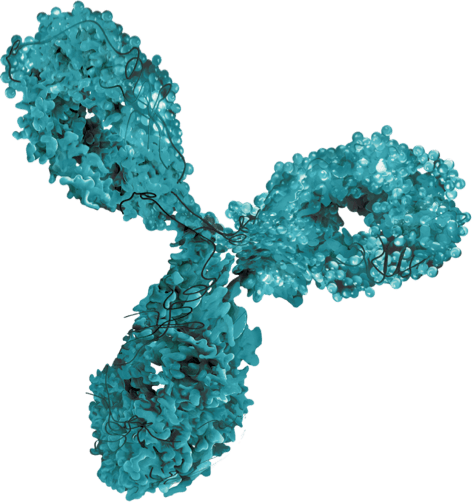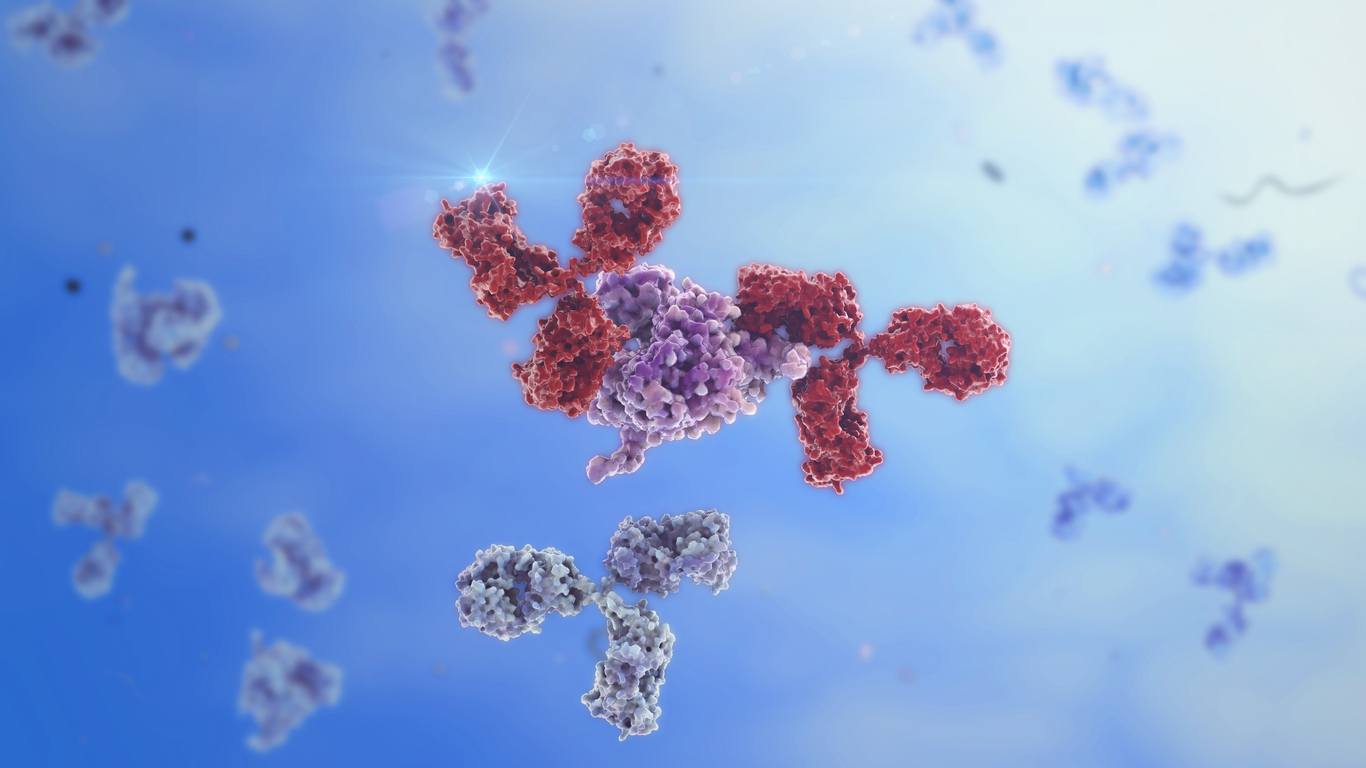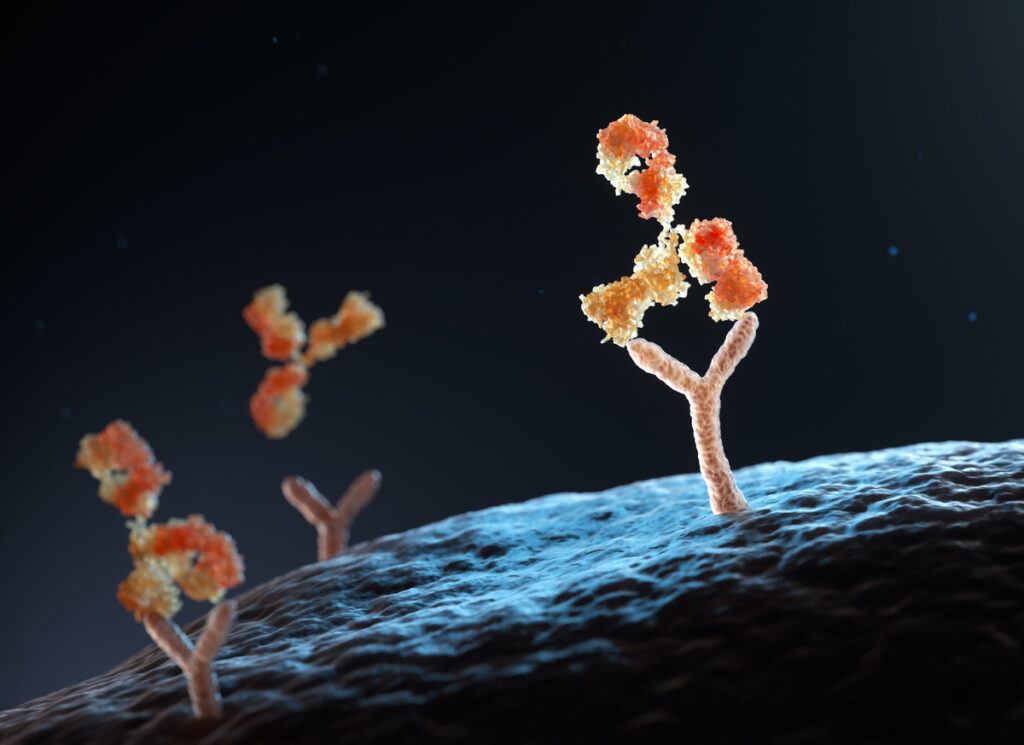Bioanalytical support for immunogenicity testing of therapeutics
Immunogenicity risk assessment is critical to the development of most therapeutic modalities. It can affect both safety and efficacy, ranging from no evidence of clinical effect to severe, life-threatening responses. Assessment of undesirable immunogenicity of therapeutics is a key element in drug development.
Assess immunogenicity for therapeutic modalities, including:
- Immunogenicity testing of large molecules and ATMPs
- Assays for detection of Anti-Drug Antibodies (ADAs) and Neutralizing Antibodies (NAbs)
- Assays for detection of cellular immunogenicity (ELISpot and flow cytometry)
- Measurements of cytokine production
- Reagent labeling and oversight of surrogate positive control antibody generation
- Statistical analysis to support cut point generation


Rely on a team of immunogenicity experts
BioAgilytix’s scientists characterized some of the first documented cases of immunogenicity to a therapeutic. They are experts in the assessment of cell-mediated and antibody-mediated immune responses to all therapeutic modalities. When you partner with BioAgilytix you are connected to:
- Regulated data to support immunogenicity risk assessment for all therapeutic modalities
- Support for global trials with labs in the U.S., Europe, and Australia
- Over 10 years of experience in immunogenicity risk assessment
- Experience in supporting studies in various species, including rodents, humans, and non-human primates

Look to advanced platforms to determine safety and efficacy
Increasingly complex therapeutic modalities require specialized platforms for immunogenicity assessment for regulated use. Our experts will help you determine the optimal method for immunogenicity assessment and select the most appropriate analytical equipment platform to yield high-quality data.
Platforms include:

Key to assessing drug safety and efficacy
Immunogenicity is a significant concern for biologic drugs as it can affect both safety and efficacy. The consequences of product immunogenicity vary from no evidence of clinical effect to severe, life-threatening responses. Therefore, the assessment of undesirable immunogenicity of therapeutic proteins and peptides is a key element in drug development. In the context of immune-mediated adverse effects, it is critical to understand the interplay of the adaptive and innate immune responses.
In recent years, there has been growing consensus regarding the data needed to assess product immunogenicity. Understanding the incidence, kinetics and magnitude of Anti-Drug Antibodies, its neutralizing ability, cross-reactivity with endogenous molecules or other marketed biologic drugs, and the related clinical impact, may enhance clinical management of patients treated with biologic drugs.